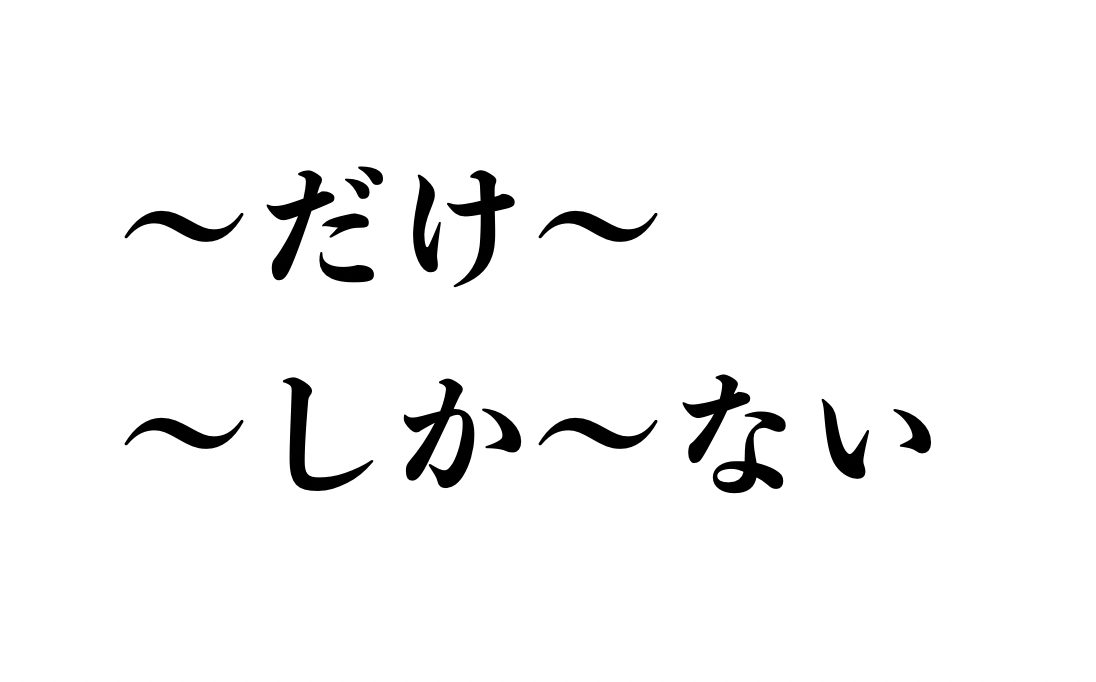Do you know the differences in nuance between
“〜だけ〜” (~dake~) and “〜しか〜ない” (~shika~nai~)?
What is the differences in nuance between “shika” and “dake”.
What would you say in Japanese if there is only one tea there?
“There is only tea there.”
How do you say this in Japanese?
1.ここにお茶だけあります。
(kokoni ochadake arimasu)
This is the right answer.
But there is another way to say it.
2.ここにお茶しかない。
(kokoni ochashikanai)
It means the same thing in this sentence. However, there is a slight difference in nuance.
Let me explain the difference between these little nuances.
1.ここにお茶だけあります。
(kokoniochadakearimasu)
In the case of this sentence, it speaks to the fact that there is only one tea in the place.
There’s nothing there but tea.
2.ここにお茶しかない。
(kokoniochashikanai)
In the case of this sentence, it speaks to the fact that there is also only one tea in the place.
There’ s nothing there but tea.
But it’s not just that fact, it’s also the disappointment.
What I’m trying to say is “It would have been nice if there were other drinks instead of just tea.”
It’s not directly saying that, but it’s implying such a nuance.
For example No.1
“I can only see the moon.”
How do you say this in Japanese?
1.月だけ見える。
(tukidake mieru)
This is the right answer.
2.月しか見えない。
(tukishika mienai)
This is the right answer too.
However, this wording includes the nuance that it would have been nice to see the stars as well as the moon.
For example No.2
“I’m the only one here.”
How do you say this in Japanese?
1.ここに私だけいる。
(kokoni watashidakeiru)
This is the right answer.

COMMENTS